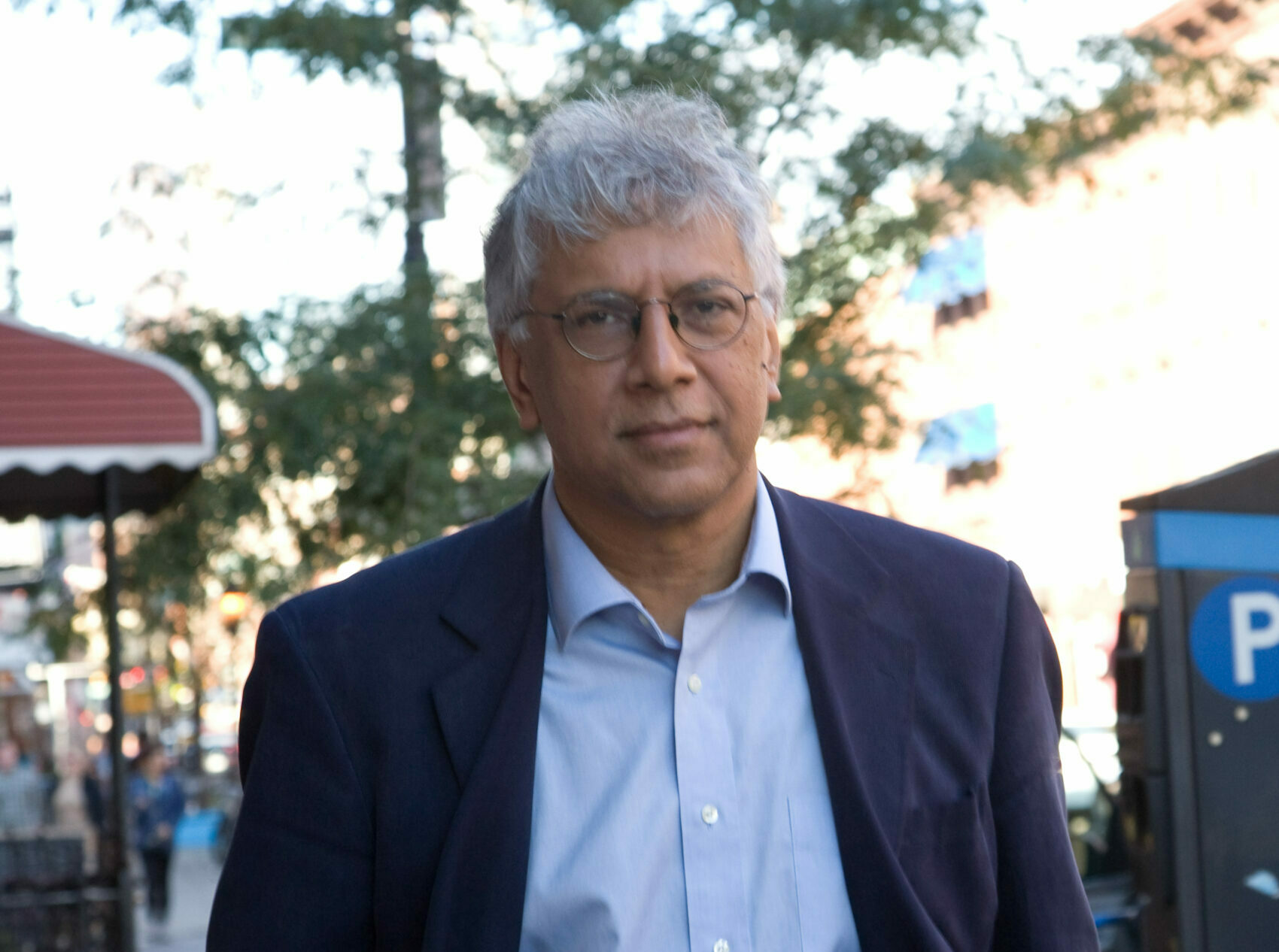“That Little Click in the Mind”: Vijay Seshadri Reflects on his Tenure as the Review’s Poetry Editor
This fall marks a transition on our editorial team, as Vijay Seshadri is bidding the Review farewell—at least as our poetry editor, a role he has occupied since 2019. He will be greatly missed. With our forthcoming Winter issue, we will welcome to the role Srikanth “Chicu” Reddy, a professor at the University of Chicago who has served as a guest editor of Poetry magazine and is the author of three books of poetry, most recently Underworld Lit. We are deeply grateful to Vijay for introducing us to the work of so many remarkable poets over the last few years, and for being a marvelous colleague and a true friend to the Review.
The worst thing about choosing poems for The Paris Review is having to say no. The magazine receives many submissions, and many of those include strong poems that deserve to be in its pages but can’t be accommodated. Turning down poems is probably even worse for a poetry editor who is also a practicing poet and knows how being turned down feels. Guilt, misgivings, second-guessing, paralysis about naysaying, and avoidant behavior are the by-products of the process. And they should be. As a writer, if you don’t identify with the writers who are sending you work, you’re probably hardening yourself against yourself.
Other than that, being The Paris Review’s poetry editor for the past thirteen issues has been a terrific experience. Looking back over the more than sixty years since I washed up on American shores, I’ve come to recognize how much literature was the means by which I socialized myself into this country and its civilization. Choosing poems for the magazine and mulling over the choices I made gave me a chance to make that socialization concrete in my mind. I was a descriptive rather than a prescriptive editor, largely because that unusual process of socialization had left me with a vivid sense of the imagined republic of American letters. At least as an editor, I saw my obligations as being almost as much civic as they were aesthetic, requiring me to acknowledge the entire republic rather than stake out a claim in one of its territories. I honored, I think, the multiplicity of American poetry (including translations into American English)—which is easy to do, because there is excellent work across the range of American literary allegiances.
There has been something deeply satisfying about engaging with this country as an editor. I was most gratified when I chose poems by poets whom I felt were unfairly neglected or underappreciated. I had the chance to publish long poems, which have a harder time finding homes. I had the chance to experience over and over that little click in the mind, with its attendant rush of endorphins—very much like the click in the mind that comes from finishing a piece of writing you like—on coming across a poem that is undeniable. Maybe my only regret is that I came to the job too late to do full justice to my experience of the poetry of my time, and to some of my deepest enthusiasms. Very early on in my tenure, for example, I wrote to Allen Grossman’s widow, Judith, begging for unpublished Grossman poems. She told me there were none. That was a bitter moment. On the flip side, though, early on I also wrote to Kamau Brathwaite asking for work. The last poem he published before his death was in the pages of The Paris Review.
I’ve worked with two excellent editors: Emily Nemens, who hired me, and Emily Stokes, who kept me on after she took the reins. The magazine’s vigilant staff and interns have made the mechanics frictionless, and have saved me from some serious rookie publishing errors. I’m grateful to the magazine itself, an enduring and central force in American culture.
And I’m particularly glad that this goodbye letter gives me a chance to express my deep gratitude to Richard Howard, protean and titanic. The first poem I submitted to The Paris Review, in the mid-nineties, when I was about to publish my first book, was a long poem called “Lifeline.” At that time, the magazine had a long-poem prize, named after one of its former publishers, Bernard F. Conners. Richard gave me the prize for my poem, and he and the magazine arranged a reading at what was then the brand-new Barnes & Noble on Union Square for me and a writer who had contributed fiction to a recent issue, from a novel she was working on. That writer was Susan Sontag. It’s hard to convey, a quarter-century later, the enormous cultural presence and authority that Susan Sontag—and, for that matter, Richard and George Plimpton—had in the New York of the nineties. It was breathtaking to stand for half an hour in front of the eminence they had created, facing the huge crowd that had come out for the reading. Looking back to that event and then along the narrative arc that led to my sitting in the chair Richard once occupied, I get another of those clicks in the mind.
Vijay Seshadri is the author of five books of poetry, including the Pulitzer Prize–winning 3 Sections, and a professor of writing at Sarah Lawrence College.
from The Paris Review https://ift.tt/Y6am9QJ

Comments
Post a Comment